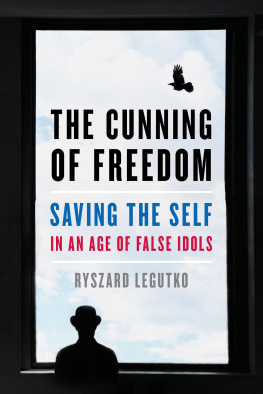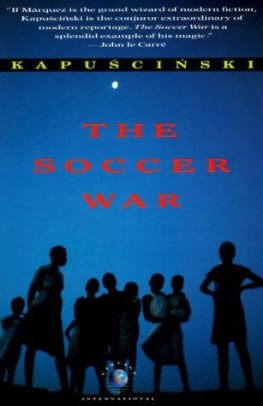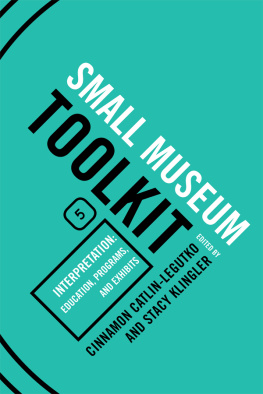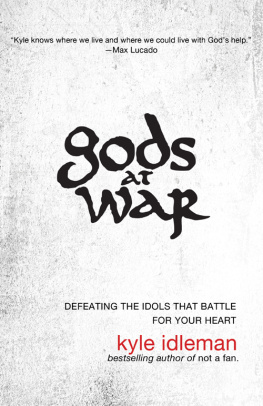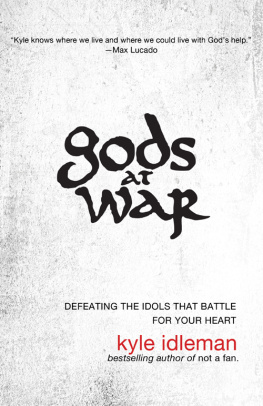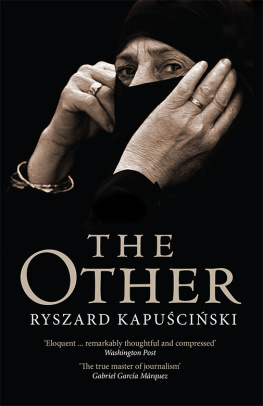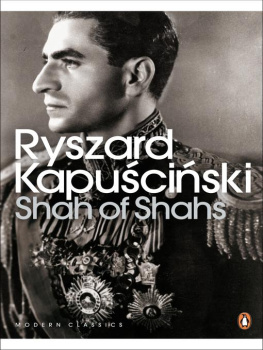Ryszard Legutko - The cunning of freedom : saving the self in an age of false idols
Here you can read online Ryszard Legutko - The cunning of freedom : saving the self in an age of false idols full text of the book (entire story) in english for free. Download pdf and epub, get meaning, cover and reviews about this ebook. year: 2021, genre: Politics. Description of the work, (preface) as well as reviews are available. Best literature library LitArk.com created for fans of good reading and offers a wide selection of genres:
Romance novel
Science fiction
Adventure
Detective
Science
History
Home and family
Prose
Art
Politics
Computer
Non-fiction
Religion
Business
Children
Humor
Choose a favorite category and find really read worthwhile books. Enjoy immersion in the world of imagination, feel the emotions of the characters or learn something new for yourself, make an fascinating discovery.
- Book:The cunning of freedom : saving the self in an age of false idols
- Author:
- Genre:
- Year:2021
- Rating:3 / 5
- Favourites:Add to favourites
- Your mark:
- 60
- 1
- 2
- 3
- 4
- 5
The cunning of freedom : saving the self in an age of false idols: summary, description and annotation
We offer to read an annotation, description, summary or preface (depends on what the author of the book "The cunning of freedom : saving the self in an age of false idols" wrote himself). If you haven't found the necessary information about the book — write in the comments, we will try to find it.
Ryszard Legutko: author's other books
Who wrote The cunning of freedom : saving the self in an age of false idols? Find out the surname, the name of the author of the book and a list of all author's works by series.
The cunning of freedom : saving the self in an age of false idols — read online for free the complete book (whole text) full work
Below is the text of the book, divided by pages. System saving the place of the last page read, allows you to conveniently read the book "The cunning of freedom : saving the self in an age of false idols" online for free, without having to search again every time where you left off. Put a bookmark, and you can go to the page where you finished reading at any time.
Font size:
Interval:
Bookmark:

THE CUNNING OF FREEDOM

2021 by Ryszard Legutko
All rights reserved. No part of this publication may be reproduced, stored in a retrieval system, or transmitted, in any form or by any means, electronic, mechanical, photocopying, recording, or otherwise, without the prior written permission of Encounter Books, 900 Broadway, Suite 601, New York, New York, 10003.
First American edition published in 2021 by Encounter Books, an activity of Encounter for Culture and Education, Inc., a nonprofit, tax exempt corporation.
Encounter Books website address: www.encounterbooks.com
Manufactured in the United States and printed on acid-free paper. The paper used in this publication meets the minimum requirements of ANSI/NISO Z39.481992
(R 1997) (Permanence of Paper).
FIRST AMERICAN EDITION
LIBRARY OF CONGRESS CATALOGING-IN-PUBLICATION DATA
Names: Legutko, Ryszard, 1949 author.
Title: The cunning of freedom : saving the self in an age of false idols / Ryszard Legutko.
Description: First American edition. | New York : Encounter Books, 2021.
Identifiers: LCCN 2020008128 (print) | LCCN 2020008129 (ebook) ISBN 9781641771375 (cloth) | ISBN 9781641771382 (epub)
Subjects: LCSH: LibertyPhilosophy. | Self (Philosophy)
Classification: LCC B824.4 .L45 2021 (print) | LCC B824.4 (ebook) DDC 320.01/1dc23
LC record available at https://lccn.loc.gov/2020008128
LC ebook record available at https://lccn.loc.gov/2020008129
Interior design and typesetting: Bruce Leckie
CONTENTS
T he question of freedom has engaged me ever since I first seriously immersed myself in the study of philosophy. On several occasions in the past I had thought I was ready to tackle the subject methodically only to discover to my dismay that, once I started pulling all the threads of thought together, I was not. The question of freedom first entered my life as a theoretical problem, as is natural for any philosophy student who reads the standard texts from Plato, to Hegel, to John Stuart Mill. For me, however, freedom was primarily a practical problem, the acuteness of which I experienced almost daily. Most of my life was spent in the Peoples Republic of Poland, a country and a system in which freedom was scarce and the desire for it immense. Painful restrictions on speech, action, even thought, marked just about everything that took place in school, at university, and in my social and academic life; and almost everything I desired required those restrictions to be lifted. Inevitably, my intellectual inquiries turned enthusiastically towards books and essays on freedom in the hope of finding a language in which I could articulate a theoretical account of my experience, and which could somehow save me from my wretched situation. I learned much from those writings yet, with hindsight, I see that the external circumstances of those times, which became increasingly harder to bear, made me expect far more from those books than simple intellectual exercisethat is, far more than they could offer.
Living in a Communist country made me increasingly aware of the flaws, inaccuracies, and plainly false conclusions that could be found in some of the concept of freedoms major interpretations which, initially,
I considered Berlins affirmative answer to this question an absurdity, all the more pernicious as it soon turned into a clich that authors of all abilities repeated until it acquired the status of unassailable wisdom. How many times have we heard that when we talk of truth we pave the way for the alleged truth-holders to keep dissenters in concentration camps? Or, when we talk of virtue, we prepare the theoretical ground for imposing severe discipline on those sinners and moral weaklings who engage in vice, pleasure, and frivolity instead of moral self-improvement? I told myself that if we pursued this line of argument we would have to conclude that a gigantic intellectual purge would need to be conducted for freedom to exist. Such a purge would tarnish Western philosophies core theories as politically suspect for being either covertly or openly authoritarian and totalitarian. Indeed, some authors less gallant than Berlin did not hesitate to say so in a most blunt and repugnant way. As for Berlin himself, he eventually noticed his essays disconcerting consequences and attempted to refute some of his assertions. But the original text has remained intact and has continued to exert its harmful influence.
I did not care for this philosophy of freedom while living under Communism; later, once that system had collapsed, I liked it even less. In an independent, liberal democratic Poland, the debate about freedom lost its seriousness, as it did throughout the entire Western world. I could see that in the ongoing crusade for freedom and liberties (which never lost its ideological dynamic) the scope of our view on the subject was rapidly shrinking, not expanding. Nor could I fail to notice that the set of problems encompassed within the word freedom, which Communism reduced considerably, continued to decline further once that ideology was gone. This led me to the rather frustrating conclusion there was no place for myself in the debates being conducted during that period. The concept of freedom got into the hands and minds of dogmatists who turned it first into a rigid, ultimately fruitless formula, and then into an ideological tool to promote a liberal model of society that I found increasingly dubious. So, I decided to rethink the concept of freedom once more, taking inspiration from the classical philosophical tradition in the belief that, in the light of this tradition, the cunning of freedom would reveal itself more fully. In defiance of Berlin, I believe the concept of freedom should open us up to an abundance of weighty philosophical questions about the world and our place within it, rather than discourage us out of fear that we put our freedom at risk by answering those questions.


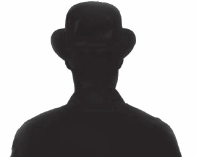

P robably the most intuitive of all the meanings of the word freedom is the absence of coercion. I am free insofar as there is no one else to hinder or stop me from doing what I want to do and, most certainly, if no one forces me to do something I do not want to do. The presence of someone sitting next to me on a bench might prevent me from spreading out all of my belongings on it. He might force me not to light up a cigarette, saying it would be bad for his health, or that there is a no-smoking rule. He might even threaten to call the police and have me prosecuted. I would be subject to an even greater degree of coercion if someone not only prevented me from smoking in his presence but also made me do something else, such as read hefty books on smokings harmfulness, or drink milk and take medications.
This sense of freedom is usually referred to as negative freedom and is so elementary that it would seem to need no further justification. Though many people fear this kind of freedom, and are happy to relinquish some if not most of it, no one can honestly say that they no longer require some domain where they are free do what they want; that what they really desire is to be coerced by others. Throughout historys innumerable struggles for freedom, it would be absurd to imagine anyone fighting for coercion as coercion; that is, with the clear and conscious intention of being seriously and systematically constrained by others. We all agree that being coerced is such an unpleasant experience that wanting it for ourselves would go against human nature. We can also agree that, just as the air we breathe is essential to us so, too, is a certain degree of freedom necessary for our natural development (even if sometimes we are more than ready to deny this to others).
Next pageFont size:
Interval:
Bookmark:
Similar books «The cunning of freedom : saving the self in an age of false idols»
Look at similar books to The cunning of freedom : saving the self in an age of false idols. We have selected literature similar in name and meaning in the hope of providing readers with more options to find new, interesting, not yet read works.
Discussion, reviews of the book The cunning of freedom : saving the self in an age of false idols and just readers' own opinions. Leave your comments, write what you think about the work, its meaning or the main characters. Specify what exactly you liked and what you didn't like, and why you think so.

